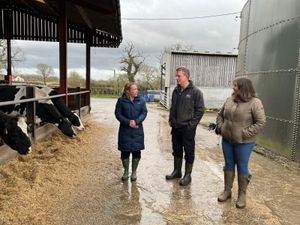Shropshire Farming Talk: Successful succession is all about planning
Within the rural and agricultural sectors there are a number of different agreements by which farms or land can be occupied.

These include secure lifetime tenancies (1986 Agricultural Holdings Act), farm business tenancies (FBT), short-term grazing licences, contract farming agreements, cropping licences and others.
Those who occupy under an Agricultural Holdings Act (AHA) agreement may have the opportunity for a succession upon retirement or death, subject to meeting the relevant criteria and the date of the original agreement.
It is important that those occupying land under this type of agreement (AHA) consider who is likely, and eligible, to succeed and start to get the relevant information lined up well in advance.
In some circumstances the eligible successor may be obvious and fully meets the criteria set out in the Act. However, it is not unusual for a successor to be required to supply additional information during the process or to not fully meet the meaning of an ‘eligible person’.
By having these conversations ahead of time, it increases the possibility of a more seamless transition between generations.
Within the AHA there are numerous timings which must be adhered too. For example, the application to the Agricultural Land Tribunal (ALT) has to be served within three months of the day after the date of death.
Failure to meet some of these timings may invalidate an application. It is, therefore, important to understand the type of agreement under which the farm or land is occupied and how this might impact on a succession application.
This process may seem daunting, but careful and well-considered planning is likely to reduce the stress of the process and increase the chances of a successful succession.
Dan Bowden is a Partner at Barbers Rural





